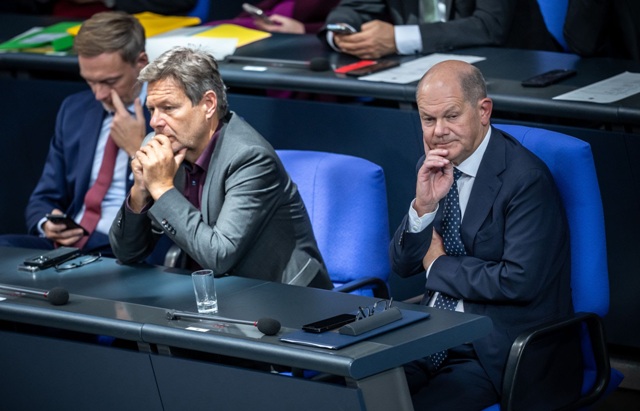Admin I Wednesday, 06 November 2024
BERLIN – Three German political parties have failed to advance talks on forming a regional coalition government in the eastern state of Saxony, one of the parties involved announced on Wednesday.
The exploratory talks were being held between the centre-right Christian Democrats (CDU), the centre-left Social Democrats (SPD) and the Sahra Wagenknecht Alliance (BSW), which recently broke away from the far-left party Die Linke.
The BSW announced that the talks had collapsed as the parties could not agree on the peace formula regarding the war in Ukraine, migration policy or financial policy. After a third meeting on the subject of the war in Ukraine, the BSW accused the potential coalition partners of not wanting to agree on a commitment to peace.
The chairwoman of the BSW in Saxony, Sabine Zimmermann, said: “Russia’s terrible war of aggression in Ukraine, which is in violation of international law, is worrying so many people here in Saxony that a new state government must address these concerns and fears. Those who do not do so are closing their eyes and ears.”
The CDU has ruled out coalitions with the far-right Alternative for Germany (AfD) and Die Linke. This means the only option left for the CDU state premier Michael Kretschmer is to form a minority government.
The CDU emerged as the strongest party in Saxony in the regional election in September, winning 31.9% of the vote, followed by the AfD with 30.6%.
According to the German Constitution, a new state premier must be elected within four months of the new regional parliament being formed. Parties therefore have until February 2025 to elect a premier. If they fail to do so, parliament must be dissolved and new elections called.
